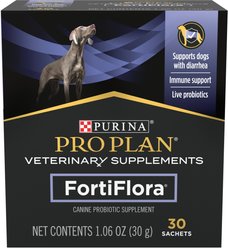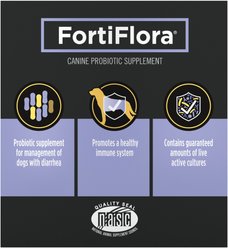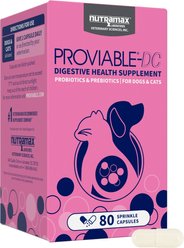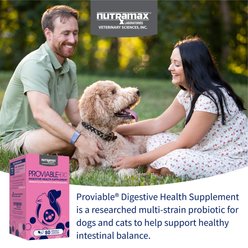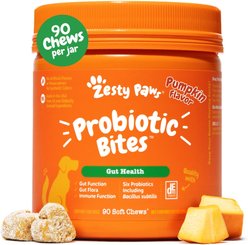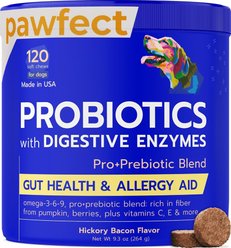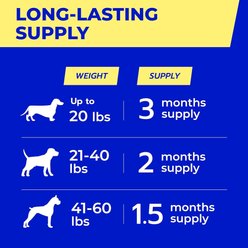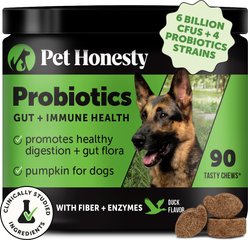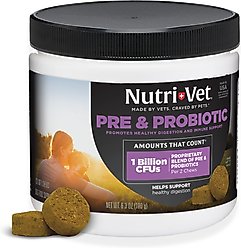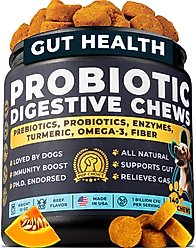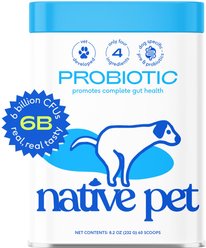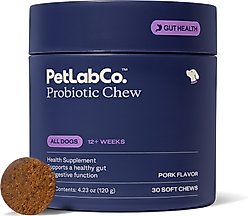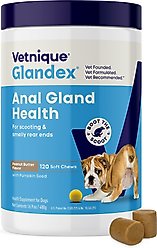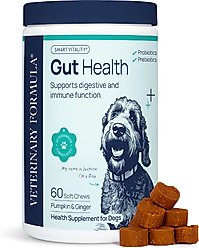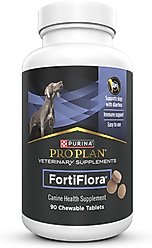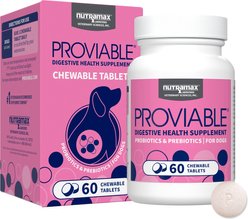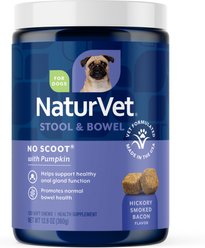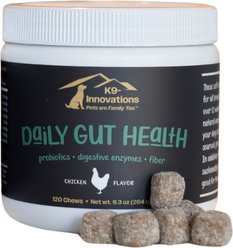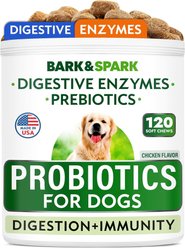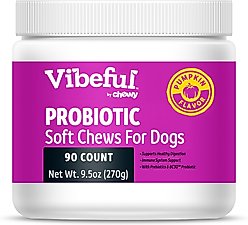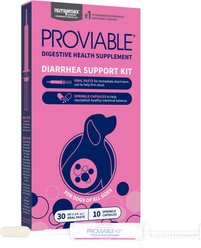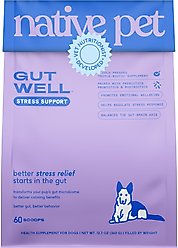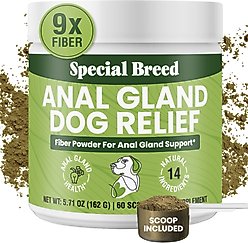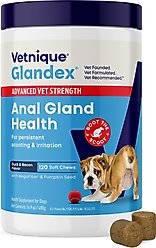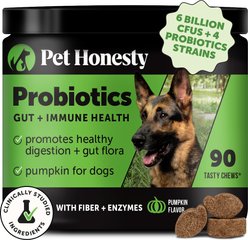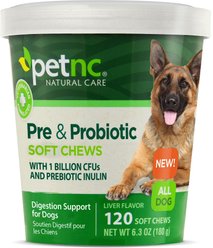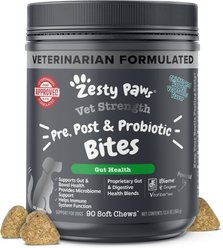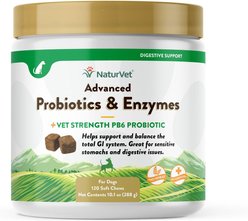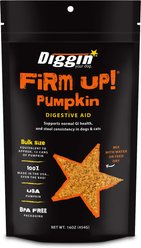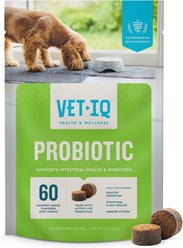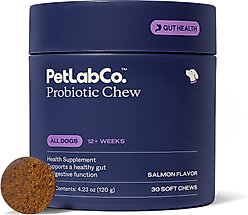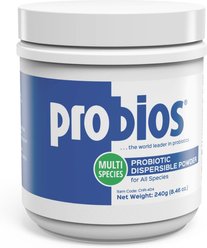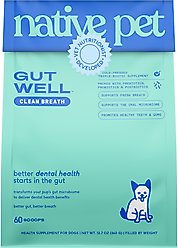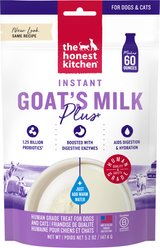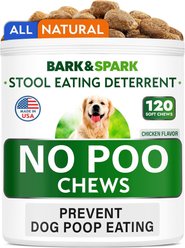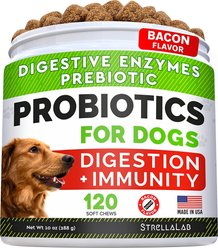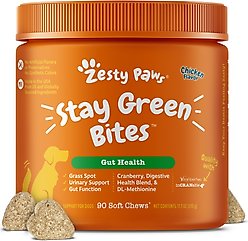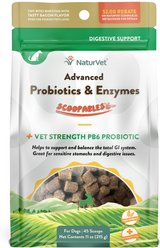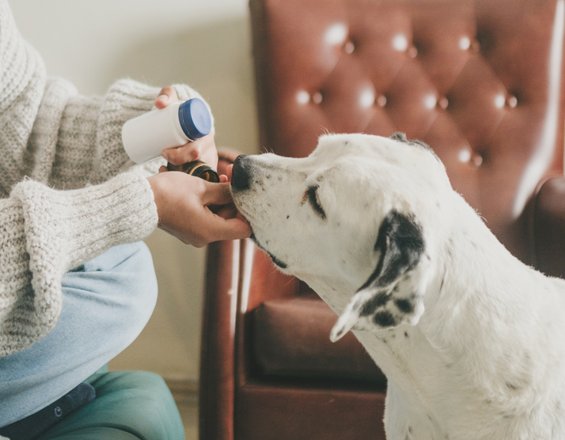1 - 36 of 439 Results
1 - 36 of 439 Results
Digestive Health Supplements & Probiotics for Dogs
Pups suffering from a variety of different ailments can often benefit from taking probiotics for dogs. Probiotics are live, beneficial bacteria that help create a healthy gut environment and promote overall wellness and immunity. Whenever your dog has digestive issues like diarrhea, indigestion, gas, or bloating, a probiotic supplement can usually help rebalance his microbiome and get things back on track. Vets sometimes recommend probiotics for dogs dealing with:
- Digestive upsets
- Diarrhea or any change in bowel movements
- Stress from things like boarding, illness, or change
- Antibiotic use, which can disrupt healthy gut bacteria
- Food sensitivities
Canine probiotic supplements sometimes also include digestive enzymes for dogs. These enzymes may help sensitive dogs more easily break down food for better digestion and nutrient absorption. If your dog is suffering from digestive issues, be sure to see your vet promptly for proper diagnosis and treatment. Your vet may suggest a dietary change, prescription medication, and/or a daily dog probiotic supplement. Whatever your vet recommends, you can order it from Chewy and have it shipped to your door as often as you need it with Autoship.
Frequently Asked Questions about Digestive Health Supplements & Probiotics for Dogs
Should dogs take probiotics?
Some dogs should take probiotics, while others may not need them. Probiotics can help with a variety of digestive ailments and help with other conditions, as well. Some experts suggest they can be beneficial for overall health, too. Talk to your vet about whether probiotics may be a good idea for your dog and seek guidance on which ones might be best.
What are the best probiotics for dogs?
The best probiotics for dogs are those that are easy to administer and full of beneficial strains for your pup. Be sure to get probiotics made specifically for dogs, as human probiotics may have ingredients that are dangerous or inappropriate for your canine. Formulas without too many fillers or additives may be better for dogs with sensitive stomachs and allergies, as well.
How long should dogs take probiotics?
Dogs should take probiotics for as long as a vet recommends. Probiotics may be recommended after a course of antibiotics or when diarrhea is present, and these are usually shorter courses that last for a few weeks to a month. Dogs with ongoing or recurrent health issues may be put on a probiotic indefinitely or have to take them whenever certain symptoms occur.
How do I give my dog a probiotic?
Give your dog a probiotic according to the instructions on the package. Probiotics come in many forms, including powder, capsule, liquid and chew formulations. Most are made to be mixed in with food or sprinkled on top, but some probiotics come in easy-to-feed chews or tablets. Experts usually recommend giving probiotics with meals, but your vet can give you more detailed dosing, timing and administration instructions if you are unsure.

